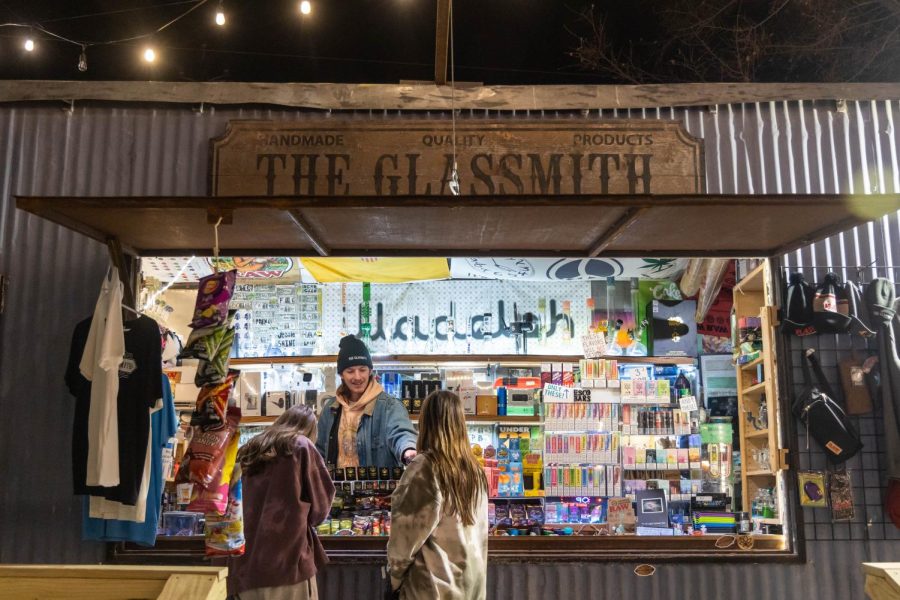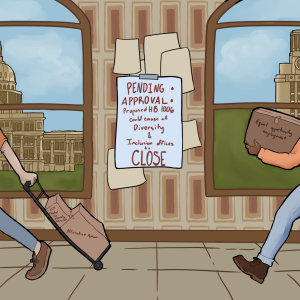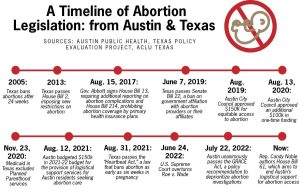Students discuss proposed ban on delta-8 products in Texas Legislature
January 31, 2023
Texas State Sen. Charles Perry filed a bill in December to ban the production and sale of all synthetic forms of THC, which includes delta-8 products. If passed, the ban would take effect on Sep. 1, according to the draft.
The Texas Department of State Health Services classified delta-8 as an illegal substance in 2021, but a lawsuit that claims the state did not give product retailers adequate notice to halt sales has the order on pause. Delta-8 is a THC product typically manufactured by collecting concentrates from hemp cannabidiol or cannabis plants, according to the Food and Drug Administration.
“A person may not manufacture, sell or purchase a consumable hemp product in this state that contains synthetically derived (THC),” the bill draft states.
Kurt Fischer, a worker at The Glassmith smoke shop located in West Campus, said customers come to buy delta-8 products for recreational use and to relieve pain, anxiety and other ailments. If delta-8 were to be banned, it would hurt people more than it would help, Fischer said.
“It’s kind of sad to see (the proposed bill),” economics junior Fischer said. “You want the best for your citizens, but it doesn’t feel like the best (law) for your citizens.”
Maddie Wentworth, a public relations junior and member of Texas Horns for Cannabis, said she recreationally uses delta-8 products and would be disappointed if the bill were to pass.
“If (the government) keeps perpetuating this habit of banning all of these drugs that they just aren’t educated about, then they’re going to keep perpetuating ignorance,” Wentworth said.
Because of the state’s lack of regulation around THC products, Fischer said it is up to smoke shops like The Glassmith to determine which products are safe for consumers by picking brands that have been lab tested. He said if delta-8 becomes illegal, he fears customers will turn to illegal purchase through sources that do not ensure a product’s safety.
Fischer said he thinks having trained shop employees, like those in states with legal marijuana dispensaries, would be a better solution than an outright ban to prevent customers from engaging in risky health behaviors.
“Give people places to go to get these products and to get them safely,” Fischer said.
A ban would impact people both behind and in front of the counter, Fischer said.
“All of these (THC) products have such a variety of uses, (so) it’s hard to pin down what anyone’s using it for,” Fischer said. “Turning it into a regulated market protects everyone within Texas. That’s the government’s job at the end of the day.”















